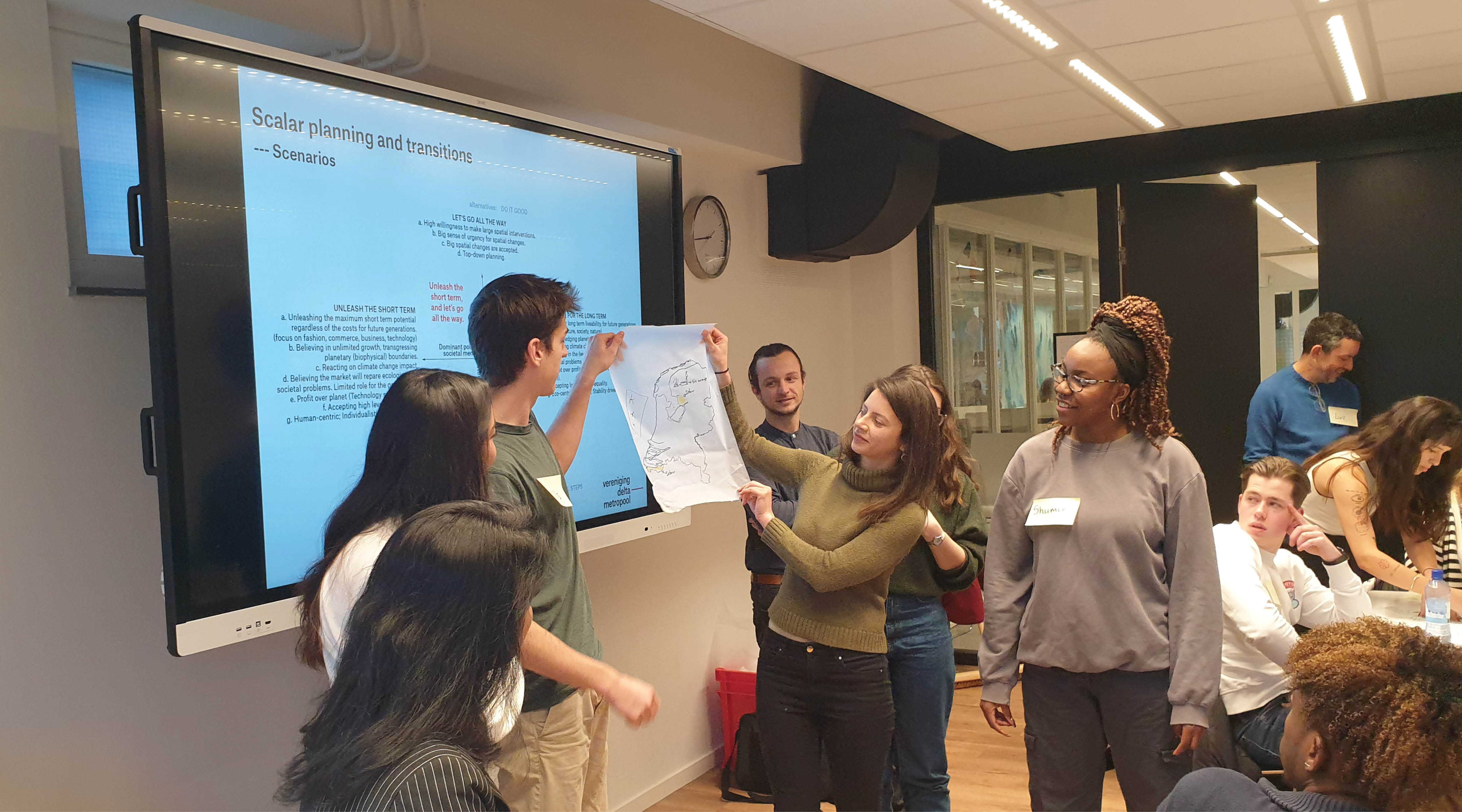Scalar planning and transitions
Workshop with students of BUas
23 januari 2023
A Young Planners Workshop was developed for Breda University of applied sciences (BUas) students that embraced a multi-sectoral, inter-sectoral approach to understand the impacts of energy at three different scales: The National (The Netherlands), The Province (Province South Holland) and at the Neighborhood level (Delft).
The students had to examine the energy impacts and effects on different scales, with the intention to show the students a way to approach its complexity and to inform them about effective planning and strategic decisions that could be taken in energy-related issues.
A group of 40 students attended this workshop, and by the end of the workshop left with a greater appreciation for the complexity around the energy topic and a deeper understanding of its role in our lives.
Learning objectives:
By the end of this workshop, students were able to understand the energy needs and challenges at the national, provincial, and neighborhood levels in the Netherlands, analyze the impacts of energy on the environment, economy, and society, and identify strategies for balancing these competing interests, projecting them on different scales and times.
They also had to identify opportunities for improving energy efficiency in the built environment and evaluate potential interventions and/or policies at different scales of decision-making.
Framework and Scenarios
The workshop consisted of the following elements, four scenarios: Unleash the short term and let us go all the way, Unleash the short term but take it easy, Unleash the long term and let us go all the way, Unleash the long term but take it’s easy. In addition, this workshop also asked the students to work in four scales: the Netherlands, the Province of South Holland, the City of Delft, and the Neighborhood of Voorhof, using a timeline from 2030 – 2050.
During each timeline, a set of conditions and challenges were given to the students to solve, from increasing global temperatures to sea levels rising, students had to create innovative solutions for these challenges.

